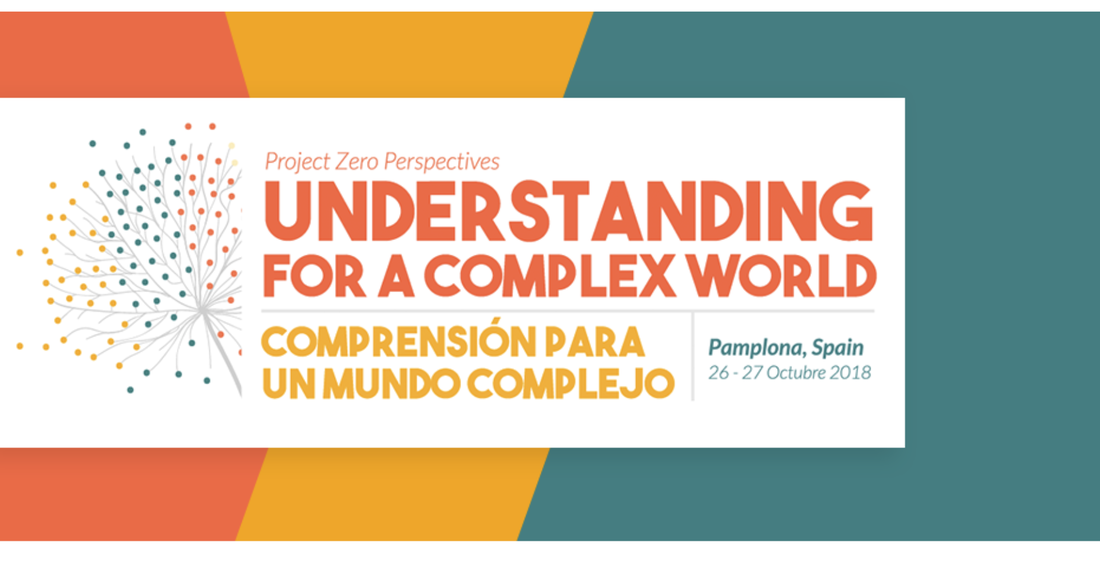|
I spent the last few days in beautiful Pamplona attending Project Zero's Understanding for a Complex World. This was my first time attending as faculty and presenting - my workshop was called "Using the Understanding Map to Uncover Hidden Stories in Photographs". I loved the workshop as I learnt so much from the participants, and sharing is always a great way to reflect.
I thought I would share my workshop here too. This was a two hour workshop (though we actually could have used more time), so the video version just briefly describes some of the activities we did. As participants entered the learning space, I played this slideshow, showing some photos taken around the world in the last month.
Here is the presentation that followed:
The main message was that we can use photographs as a starting point to bring complex issues into the classroom. We can also use different routines to help us slow down and go deep, instead of merely glancing at an image, having a short emotional reaction, then moving on! The routines used help students look at different perspectives, explore their emotional responses, back up their ideas with facts and finally reflect on their learning.
If you have any questions - let me know!
I wanted to share a quick activity I did with my Grade 6-8 students recently. The theme through my Design class is 'How can we use design to make the world a better place?'. We cover a lot of complex and difficult issues in class, and often discuss how we can be ethical designers. This often covers using sustainable or recycled materials, making products to help others and more. I've noticed an overlap within our conversations with elements of the IB Learner Profile, for example, be caring when choosing the materials you use to create. I decided to have students look at the IB Learner Profile and to think about how we can demonstrate, strengthen or embody the different attributes of the profile. In tables of or five students where given ten post it notes, and had to divide the attributes between them. This was useful because I have a few team projects now, so I liked observing the roles they played here. As the students were working as a team, they also played special attention to supporting our phase 1 and 2 English language learners. Here's some of what they came up with: Try using this in your subject! What is an 'IB historian?" - what about 'an IB scientist?'
|
Archives
June 2023
|

 RSS Feed
RSS Feed